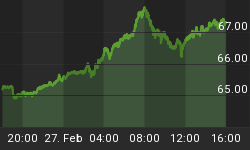We are being told loudly and repeatedly that the gargantuan mortgage bail-out package is necessary because illiquid mortgage-backed securities are clogging our financial arteries, threatening the economic equivalent of cardiac arrest. The idea of the plan is to transfer these supposedly valuable, but currently unmarketable, assets to the government so that private institutions can freely lend once more. The monumental flaw in this argument is that the mortgage backed securities are in fact highly liquid, just not at the prices the owners would like to receive.
Mortgage bonds are just like houses. They won't sell if the owners stubbornly refuse to drop the price. However, they can find buyers if they acknowledge reality, and lower their expectations accordingly.
The government tells us that if these assets are held to maturity their full value will eventually be realized, and that it is only because of a lack of current liquidity that their value is not reflected in the market. However, as many private transactions have shown us in recent months, these assets will find buyers at the right price. These are not overly exotic assets but relatively straight forward mortgage obligations. The inability to find buyers is not a function of liquidity but simply of price. The government is seeking to "create liquidity" by overpaying.
The government's assumptions about the "held to maturity" value of these mortgages completely understate the likelihood of widespread default. Some of the "illiquid" assets represent tranches of mortgage-backed securities that will be completely wiped out. Even the higher quality tranches will suffer severe losses due to mortgages that will inevitably go bad.
For example, take a $500,000 adjustable rate mortgage on a condo in Las Vegas that has a current value of only $250,000. To assume that this asset can be safely held to maturity is absurd, when in all likelihood the borrower will default shortly after the rate re-sets, even if the borrower has not yet shown signs of distress. Of course such a mortgage would be completely illiquid if one tried to sell it anywhere near par, but would be extremely liquid if priced to reflect a more realistic value; say 35 cents on the dollar. But if the government pays prices that fairly factors in likely defaults, it will bankrupt the very institutions it is trying to bail out.
Another factor that has not yet been considered is that that the government has already indicated that it will try to avoid foreclosures by reducing the principal and interest rates on the loans it acquires to levels current homeowners can afford. This will immediately eliminate the delusion of the government recouping its "investment" as even if held to maturity the mortgages will never be worth anything close to what the government pays.
Also missing in the discussion is the concept of the time value of money. Even if a substantial percentage of the $700 billion is eventually recovered, it will still represent a huge loss for taxpayers who theoretically have to come up with the cash today to buy the mortgages. Further, the inflationary nature of the bailout ensures a substantial rise in long term interest rates. This will further suppress the present values of the low coupon mortgages the government will be restructuring.
The moral hazard implicit in the government's willingness to re-write troubled mortgages ensures that the plan will spark a wave of new delinquencies by borrowers looking to cash in on the windfall. Since troubled loans will no longer be foreclosed by lenders but instead sold to the government, the rational choice for many homeowners will be to stop making their mortgage payments and wait for a better deal from the government. This reality will eventually push the cost of this bailout well above $2 trillion.
In addition to the government bailout, distressed lenders are looking to the suspension of "mark to market" accounting rules as a means of salvation. These rules require institutions to value their mortgage assets according to the most recently traded price. However, suspending these rules will not make the losses go away. Rather it will simply allow lenders to pretend that the losses do not exist.
Armed with such fantasies, banks could pretend that their mortgage assets had more value, and that their balance sheets were well capitalized. They would not need to raise more capital in order to fund new loans. But, just as a person with no sensitivity to pain runs the risk of catastrophic injury, such a move would encourage financial institutions to take greater risks which, in the end, will produce more bankruptcies and greater losses.
In fact, the Senate version of the bailout bill, which authorizes a suspension of mark- to-market, also increases the dollar limit on FDIC insured deposits from $100,000 to $250,000 (with no extra money budgeted to fund the increased taxpayer liability). Only in Washington would a bill pass which simultaneous makes banks more likely to fail while increasing taxpayer exposure when they do!
For a more in depth analysis of our financial problems and the inherent dangers they pose for the U.S. economy and U.S. dollar denominated investments, read my new book "Crash Proof: How to Profit from the Coming Economic Collapse." Click here to order a copy today.
For an updated look at my investment strategy order a copy of my just released book 'The little Book of Bull Moves in Bear markets." Click here to order your copy now.
More importantly, don't wait for reality to set in. Protect your wealth and preserve your purchasing power before it's too late. Discover the best way to buy gold at www.goldyoucanfold.com. Download my free Special Report, "The Powerful Case for Investing in Foreign Securities" at www.researchreportone.com. Subscribe to my free, on-line investment newsletter, "The Global Investor" at http://www.europac.net/newsletter/newsletter.asp.















